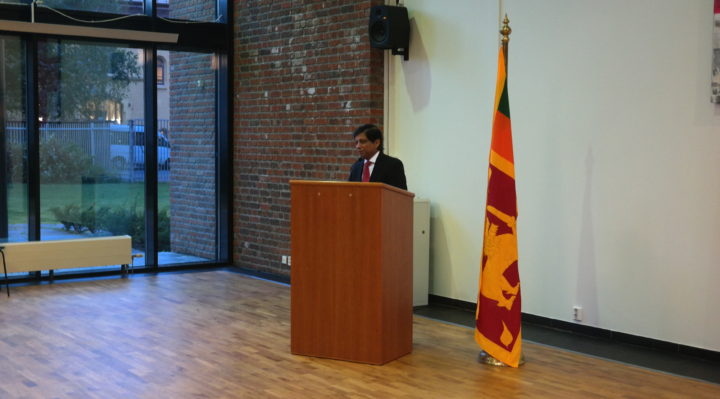
The first Sri Lankan Diaspora Dialogue in Norway was held at the Norwegian Red Cross Conference Center, Norway. Collection of a group of “Norwegian Sri Lankan” representatives of various associations from all over Norway enthusiastically participated in this initiative by the Embassy of Sri Lanka in Norway.
On this occasion, the entire team of the Embassy and Consulates, led by Ambassador Manjusri Jayantha Palipane, began a new engagement with the Sri Lankan Diaspora in an institutionalized manner. The diaspora was praised for the role it has played in becoming an integral part of Norwegian society and of the Norwegian economy, as well as for its efforts in bridging Sri Lanka and Norway. The Ambassador stated that this needed to be further worked on and extended. He also used the occasion to brief the diaspora on the Government of Sri Lanka’s initiatives and asked for more fulsome contributions by catalyzing Norwegian friends.
The following is the full text of Ambassador Manjusri Jayantha Palipane’s speach at the inaugural session of the Diaspora (Eid) Dialogue Held in Oslo, Friday 30 September, 2016.
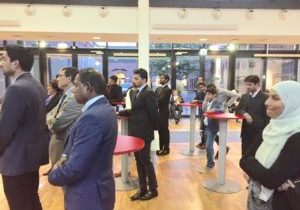 You might not know that we had a visit of the Sri Lankan foreign minister, Mangala Samaraweera, here in June, and it was during his visit that the proposal or an idea of an Eid get-together to be organized by the Embassy was mooted, and the foreign minister agreed to host the Eid. I also would take this opportunity to convey the very best wishes and greetings of foreign minister Mangala Samaraweera to all of you and, in fact, he suggested during that time that there would be an event in Sri Lanka to acknowledge, recognize, and celebrate the achievements of all of you who are not only in Norway, but abroad, living as Sri Lankan expatriates.
You might not know that we had a visit of the Sri Lankan foreign minister, Mangala Samaraweera, here in June, and it was during his visit that the proposal or an idea of an Eid get-together to be organized by the Embassy was mooted, and the foreign minister agreed to host the Eid. I also would take this opportunity to convey the very best wishes and greetings of foreign minister Mangala Samaraweera to all of you and, in fact, he suggested during that time that there would be an event in Sri Lanka to acknowledge, recognize, and celebrate the achievements of all of you who are not only in Norway, but abroad, living as Sri Lankan expatriates.
Friends, Ladies and Gentlemen, I would like to express a very special welcome to our Muslim brothers and sisters, who celebrate Eid, and it is on their behalf primarily that we decided to host this event on Eid. So, a very special to our Muslim brothers and sisters.
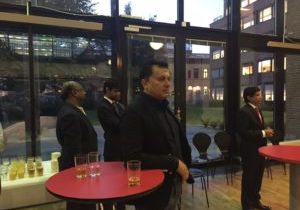 I have been here five months, and all of you have been here more than five months. So you all are veterans of Norway as well as the Norwegian lifestyle. I have been serving in many countries in my career as a professional diplomat. The closest that I came to the North Pole was Berlin, which I thought was quite cold, but I am warned here that it is much tougher, and I am twenty years older now, so I don’t know how I am going to face the winter. So if I survive the winter, you might see me in January.
I have been here five months, and all of you have been here more than five months. So you all are veterans of Norway as well as the Norwegian lifestyle. I have been serving in many countries in my career as a professional diplomat. The closest that I came to the North Pole was Berlin, which I thought was quite cold, but I am warned here that it is much tougher, and I am twenty years older now, so I don’t know how I am going to face the winter. So if I survive the winter, you might see me in January.
When we decided at a meeting the foreign minister had here in Norway in June, where he met a representative crowd, a small crowd of Sri Lankan expatriates, when the idea of the Eid to be hosted by the Embassy was, I think suggested by one Sri Lankan Norwegian , the foreign minister agreed to it and said that we would make it an occasion of the Sri Lankan get-together. So, in addition to the Eid, for us from the Embassy and from my Government, I can see that today, as a special day of having a collection of a group of Sri Lankans, and during that discussion there was a mention that some of them had never met, and some of them had never spoken to each another. So if we are making some ground on that scope, I am delighted, and I would like to have you attending our functions in the future.
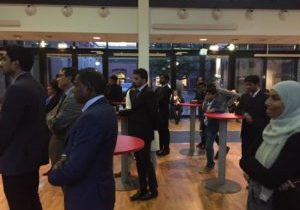 I would now like to mention a few words about the Government’s … I would say the policy, and the policy towards countries abroad, people living abroad. Now this Government is a unique government in Sri Lanka. All of you know each and every detail about it. There is nothing that I can add because, in this world, everyone knows everything. But two things I would mention at this time: the Government is dedicated on economic development, which I think is our priority, and the second is reconciliation. Now this is something that we never had as a Government policy. So the reconciliation is invariably linked to that atrocious past that we had for the last two-and-a-half decades, conflict that raged on for more than twenty-five years, with destruction, animosity, devastation, tragedy, and many more. I am sure this crowd here, in some way or the other, would have been affected by the conflict we had in Sri Lanka. There are victims, there are people who suffered as innocents, there are combatants. So now our task is to forgive and move forward. This is the message that Mr. Mangala Samaraweera mentioned the other day, when he met the Sri Lankan in Oslo, and this is something that I would just leave as a thought with you.
I would now like to mention a few words about the Government’s … I would say the policy, and the policy towards countries abroad, people living abroad. Now this Government is a unique government in Sri Lanka. All of you know each and every detail about it. There is nothing that I can add because, in this world, everyone knows everything. But two things I would mention at this time: the Government is dedicated on economic development, which I think is our priority, and the second is reconciliation. Now this is something that we never had as a Government policy. So the reconciliation is invariably linked to that atrocious past that we had for the last two-and-a-half decades, conflict that raged on for more than twenty-five years, with destruction, animosity, devastation, tragedy, and many more. I am sure this crowd here, in some way or the other, would have been affected by the conflict we had in Sri Lanka. There are victims, there are people who suffered as innocents, there are combatants. So now our task is to forgive and move forward. This is the message that Mr. Mangala Samaraweera mentioned the other day, when he met the Sri Lankan in Oslo, and this is something that I would just leave as a thought with you.
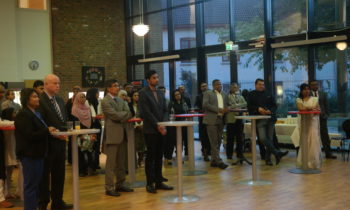
So the Sri Lankan Government is open. You never wanted to go back to SL during the last twenty-five years. You didn’t want to meet the Ambassador, you didn’t want to shake his hand, you didn’t want to visit the Embassy.
All that is history now. But, as far as I am concerned, until the last day I will represent my country as an ambassador, I will follow the policies of my Government, I will follow the rules of the Government, and I will not do anything that will violate any law. So there would have been ambassadors before who followed the policies of the previous governments. So, unfortunately or fortunately sometimes, the identity of the Government here is the Ambassador. But now we have a situation, and I am very happy about it, that we can talk about our Government as a reconciliatory government, extending a hand of good will to all the communities, particularly the Tamil community—all the brothers and sisters who suffered most.
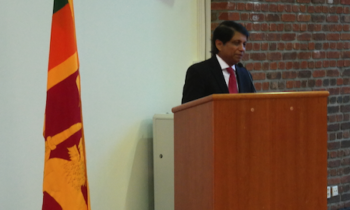 So therefore this occasion is a get-together, a celebration of Sri Lankans in Oslo. I know the numbers, we can’t match, we have fifteen to twenty thousand. But I went by the list, the database that we had here in the Embassy. If we have missed anyone—that is not something that we could have avoided, we only had names and we had to send them by email. Here, nothing goes by post, you have to have an email address, otherwise we can’t even send an invitation. So for the others, please carry the message that we welcome all of you back to Sri Lanka, and I know most of you here who go to Sri Lanka during the summer , Some have very bad experiences of the previous visits, but we are trying to overcome them, and we are trying to move forward as a nation together.
So therefore this occasion is a get-together, a celebration of Sri Lankans in Oslo. I know the numbers, we can’t match, we have fifteen to twenty thousand. But I went by the list, the database that we had here in the Embassy. If we have missed anyone—that is not something that we could have avoided, we only had names and we had to send them by email. Here, nothing goes by post, you have to have an email address, otherwise we can’t even send an invitation. So for the others, please carry the message that we welcome all of you back to Sri Lanka, and I know most of you here who go to Sri Lanka during the summer , Some have very bad experiences of the previous visits, but we are trying to overcome them, and we are trying to move forward as a nation together.
Now I am always mindful and very much aware that many of you are not Sri Lankans anymore by citizenship, but that does not mean that we cannot get together. You are mostly Norwegians, and as it seems that Norway does not have dual citizenship, you are not a Sri Lankan citizen, so you don’t have to call me “my Ambassador”, because you are Norwegians.
But for me, when I see a crowd like you, you were born in Sri Lanka or your parents were born in Sri Lanka, for me you are Sri Lankans. So in that spirit only, I welcome all of you. So our differences we will at least forget for now, and we will see how we can move forward.
Our Embassy is quite small. At the moment, I have no diplomatic officer, the officer who was with me returned and there was no replacement. So when we organized this, I only had four people in my embassy, myself, but we tried to do our best and to see whether we could host this event in a dignified way, with decorum. So I hope my attempts and the attempts of my staff would meet your satisfaction. And since we are celebrating Eid, we are inviting, I think, the secretary of the Sri Lankan Muslim Association to say a few words after me, and then we have a traditional biryani for you.
Ladies and Gentlemen, I think I don’t have to say more, I think I conveyed what I really wanted.
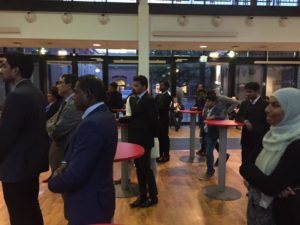
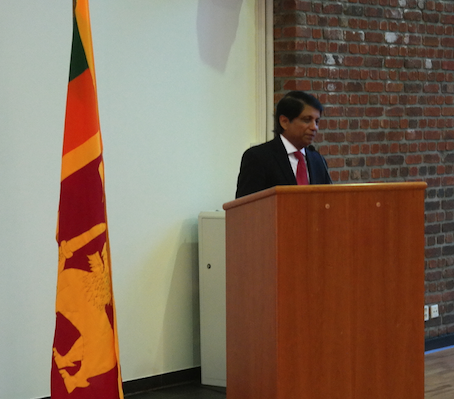
(N.Sethu)

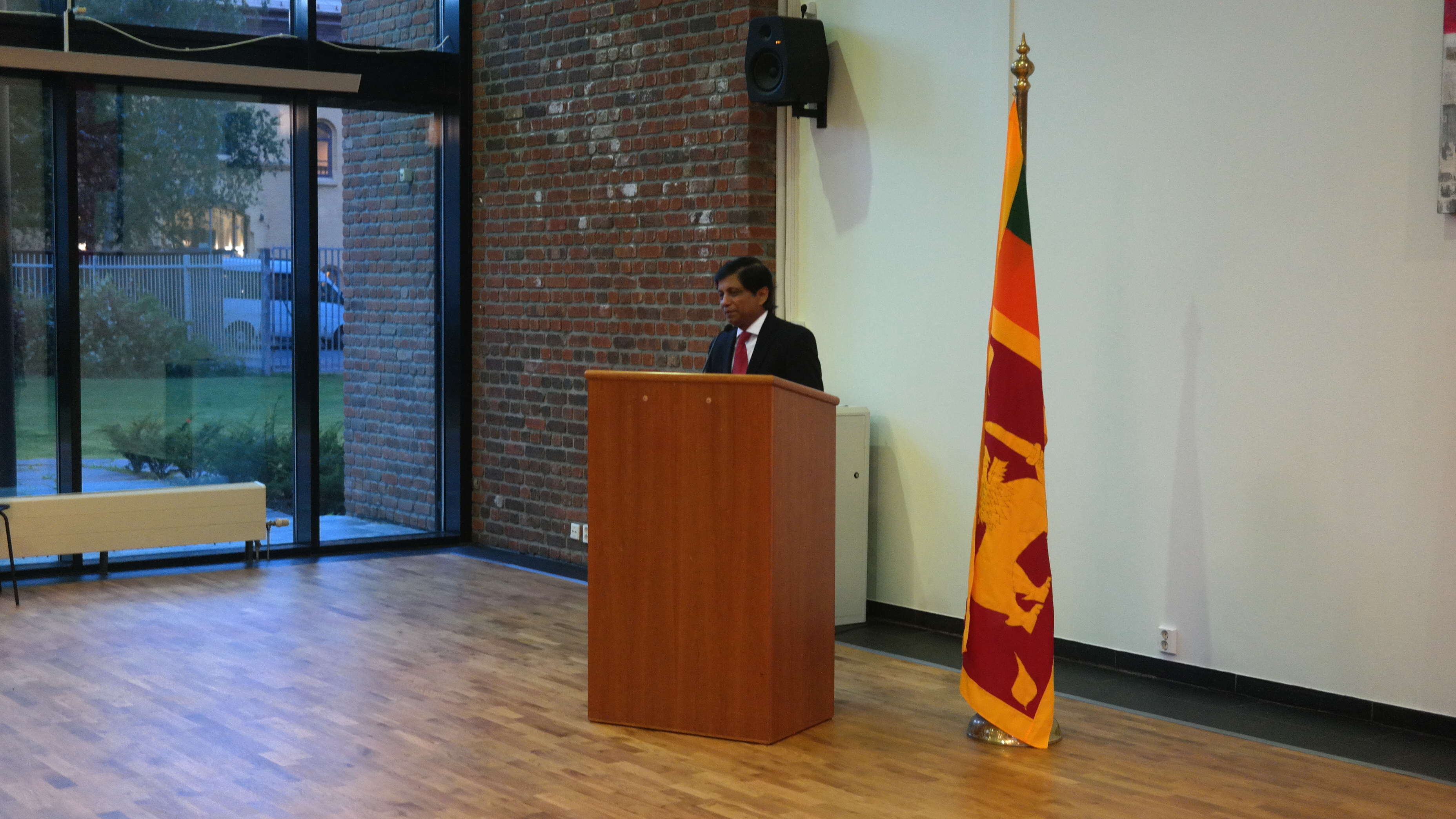
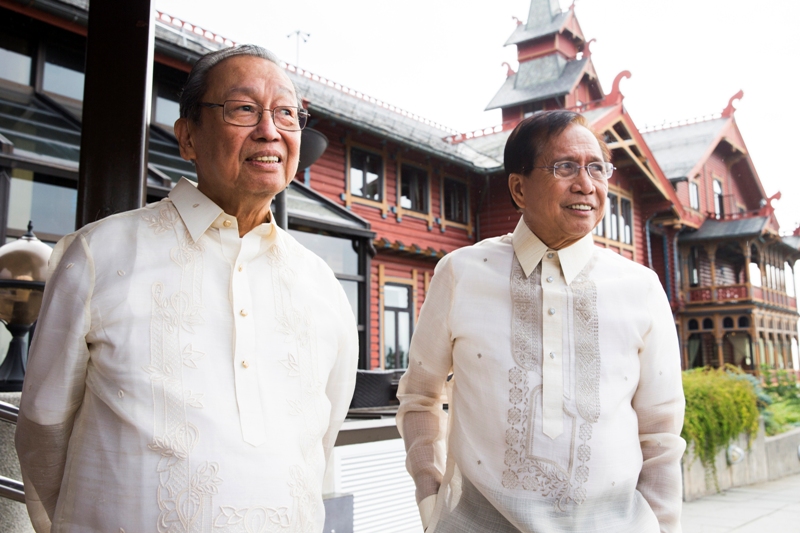
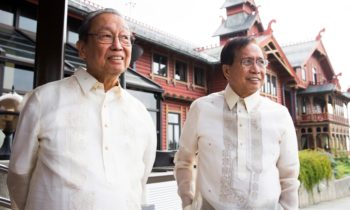 Negotiating panels of the Philippine government and the National Democratic Front are expected to exchange drafts on the proposed bilateral ceasefire and craft an amnesty proclamation as peace talks are set to resume in Oslo, Norway, on Thursday, Oct. 6.
Negotiating panels of the Philippine government and the National Democratic Front are expected to exchange drafts on the proposed bilateral ceasefire and craft an amnesty proclamation as peace talks are set to resume in Oslo, Norway, on Thursday, Oct. 6.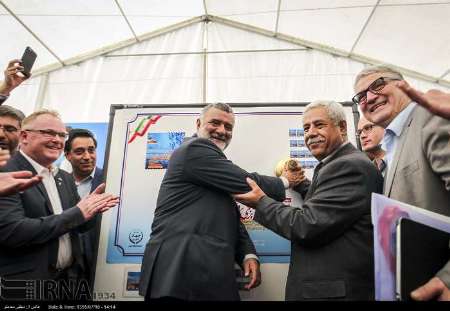
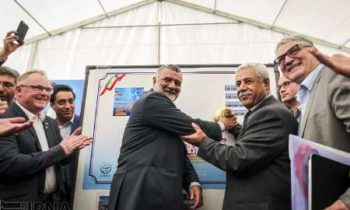 The contracts were signed in the context of International Exhibition of Fishery, Aquaculture and related industries in Milad Tower in Tehran.
The contracts were signed in the context of International Exhibition of Fishery, Aquaculture and related industries in Milad Tower in Tehran.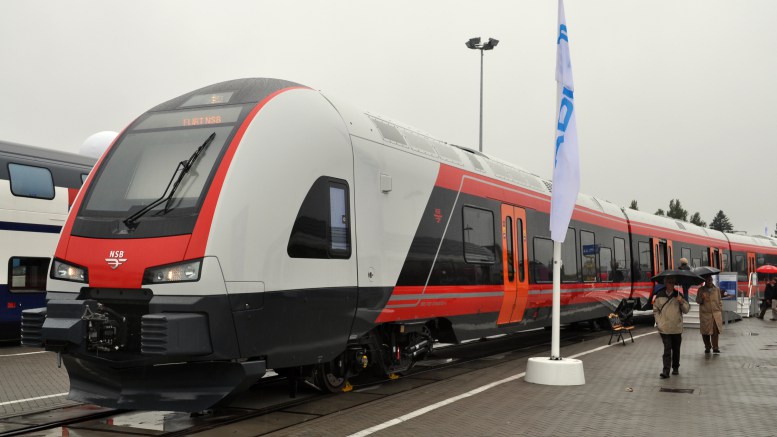

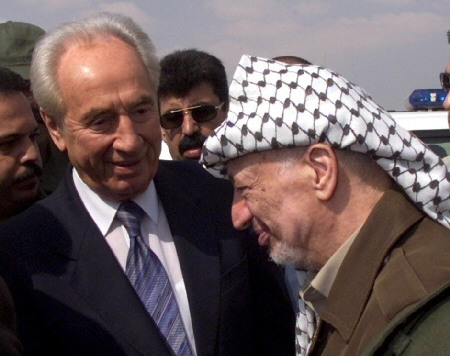
 Former Israeli Prime Minister Shimon Perez, a.k.a. the “Godfather of the Oslo Accords” has died at the age of 93, after suffering a stroke. For posterity, Perez, was the Israeli PM who signed the “accords” which were no “treaty”.
Former Israeli Prime Minister Shimon Perez, a.k.a. the “Godfather of the Oslo Accords” has died at the age of 93, after suffering a stroke. For posterity, Perez, was the Israeli PM who signed the “accords” which were no “treaty”.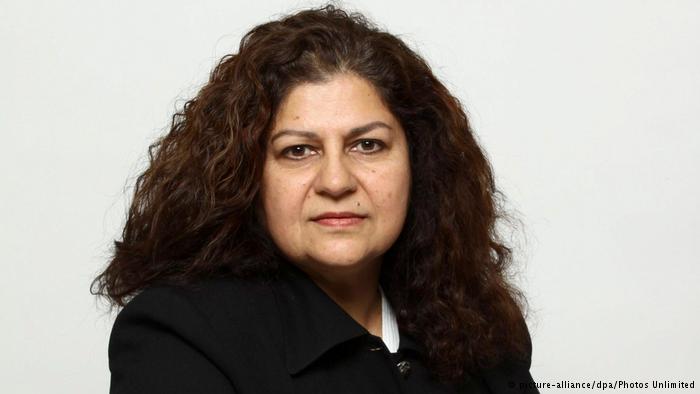
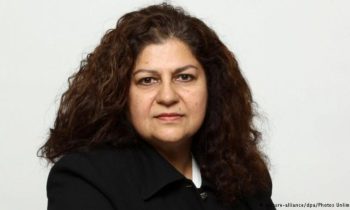 Yanar Mohammed has won Norway’s prestigious Rafto Prize. The Iraqi activist is known for her work promoting women’s rights.
Yanar Mohammed has won Norway’s prestigious Rafto Prize. The Iraqi activist is known for her work promoting women’s rights.
 Haugesund, Norway • Ten-year-old Anna Thulin-Myge’s passport shows what looks like an ordinary Norwegian girl wearing her long, blond hair fastened with a clip. It lists her first name as Anna, but under sex it says “M.”
Haugesund, Norway • Ten-year-old Anna Thulin-Myge’s passport shows what looks like an ordinary Norwegian girl wearing her long, blond hair fastened with a clip. It lists her first name as Anna, but under sex it says “M.”
 Norwegian Energy Minister Tord Lien has stated that Europe is “a very important gas consumer,” both for Norway and Russia.
Norwegian Energy Minister Tord Lien has stated that Europe is “a very important gas consumer,” both for Norway and Russia.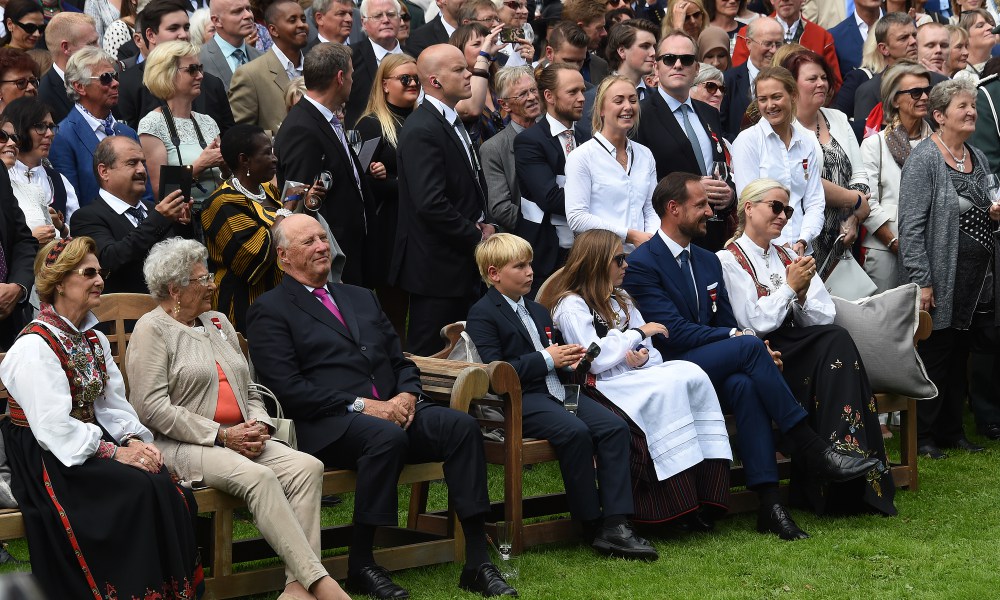
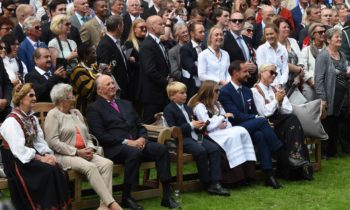 that is open to all.” They invited the public to watch the premiere of Erik Poppe’s film, King No. Between 10,000 and 20,000 people filed into the park on a rainy evening. Luckily, by the time King Harald, Queen Sonja, Crown Prince Haakon, Crown Princess Mette-Marit, Princess Märtha Louise, and Princess Astrid arrived, the weather had mostly cleared up. A group of war veterans were invited to the event to preview the movie, and the family stopped to greet them as they arrived.
that is open to all.” They invited the public to watch the premiere of Erik Poppe’s film, King No. Between 10,000 and 20,000 people filed into the park on a rainy evening. Luckily, by the time King Harald, Queen Sonja, Crown Prince Haakon, Crown Princess Mette-Marit, Princess Märtha Louise, and Princess Astrid arrived, the weather had mostly cleared up. A group of war veterans were invited to the event to preview the movie, and the family stopped to greet them as they arrived.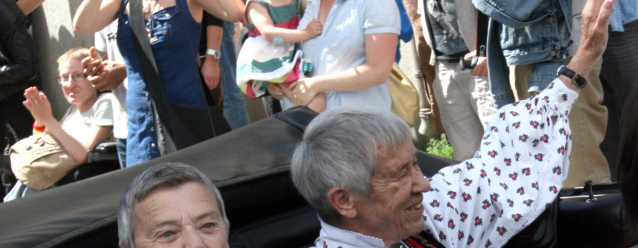
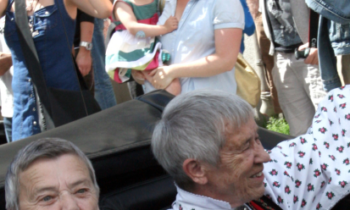 The first lesbian MP in Norway has passed away at the age of 90.
The first lesbian MP in Norway has passed away at the age of 90.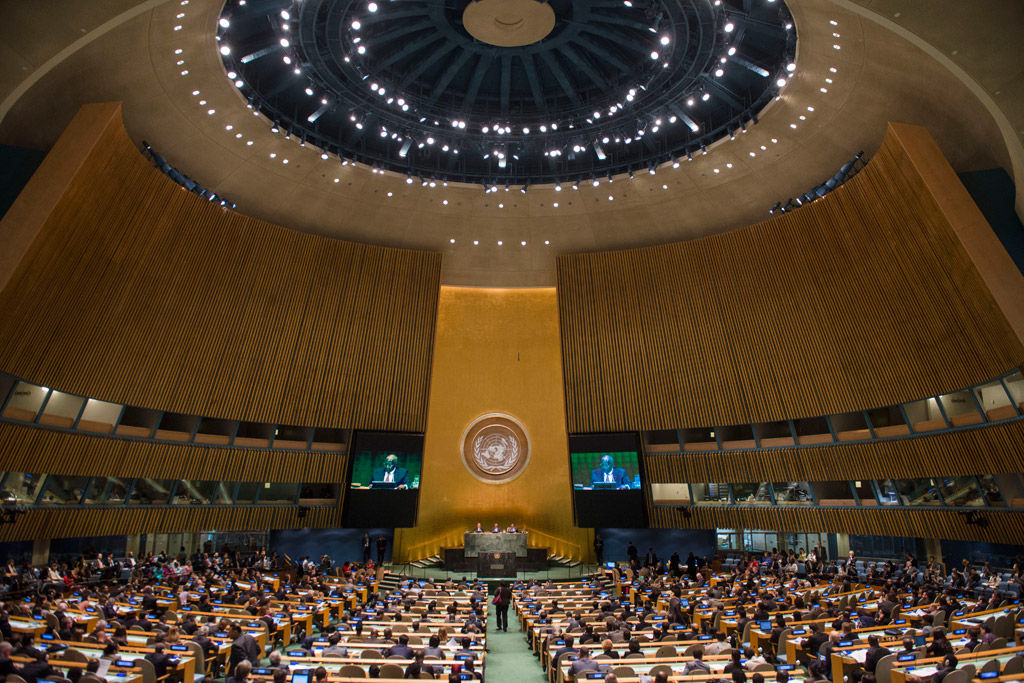
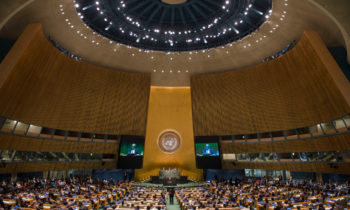 Violent conflicts are increasing in number and in complexity. Their humanitarian consequences are devastating, and a record number of people have been forced to flee their homes. ‘Preventing conflicts is infinitely preferable to repairing the damage they cause once they begin. It is also cheaper. Norway will now increase its support to the UN Peacebuilding Fund by NOK 115 million over a period of three years,’ said Minister of Foreign Affairs Børge Brende.
Violent conflicts are increasing in number and in complexity. Their humanitarian consequences are devastating, and a record number of people have been forced to flee their homes. ‘Preventing conflicts is infinitely preferable to repairing the damage they cause once they begin. It is also cheaper. Norway will now increase its support to the UN Peacebuilding Fund by NOK 115 million over a period of three years,’ said Minister of Foreign Affairs Børge Brende.
 IBM has expanded its global network of cloud datacentres by opening a new facility in Norway.
IBM has expanded its global network of cloud datacentres by opening a new facility in Norway.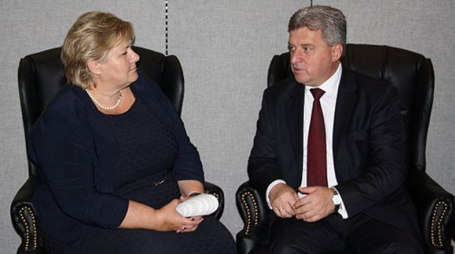
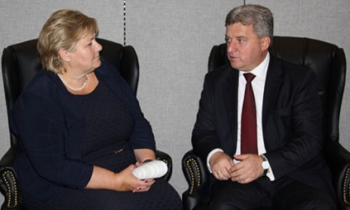 President Gjorge Ivanov met with Norwegian Prime Minister Erna Solberg on Monday, in the frameworks of the 71th United Nations General Assembly in New York. The interlocutors voiced readiness for enhancement of cooperation in all spheres of common interest, as well as intensifying the bilateral political dialogue, the President’s Office said in a press release.
President Gjorge Ivanov met with Norwegian Prime Minister Erna Solberg on Monday, in the frameworks of the 71th United Nations General Assembly in New York. The interlocutors voiced readiness for enhancement of cooperation in all spheres of common interest, as well as intensifying the bilateral political dialogue, the President’s Office said in a press release.
 The United States and Norway will conduct an aerial surveillance flight over Russia under the Treaty on Open Skies.
The United States and Norway will conduct an aerial surveillance flight over Russia under the Treaty on Open Skies.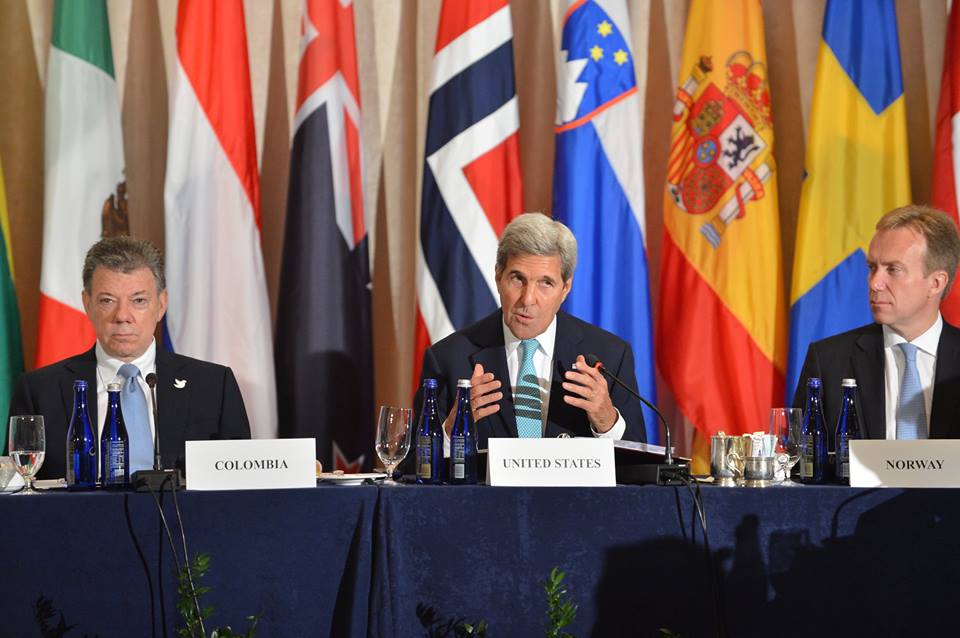
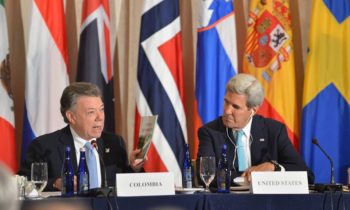 SECRETARY KERRY: Good morning, everybody, and welcome to an important event to kick off a lot of events here in the course of the UNGA week. My co-chair and good friend, Borge Brende, and I are really delighted to welcome everybody here. And we’re particularly happy today that we are able to welcome President Santos of Colombia, and needless to say, we are really grateful to so many members of the Global Demining Initiative for Colombia for coming here this morning at this important meeting.
SECRETARY KERRY: Good morning, everybody, and welcome to an important event to kick off a lot of events here in the course of the UNGA week. My co-chair and good friend, Borge Brende, and I are really delighted to welcome everybody here. And we’re particularly happy today that we are able to welcome President Santos of Colombia, and needless to say, we are really grateful to so many members of the Global Demining Initiative for Colombia for coming here this morning at this important meeting.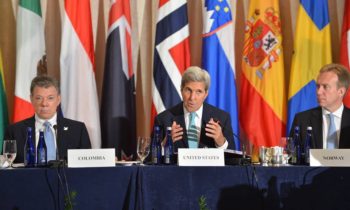 So we come together at a very pivotal moment and a profoundly heartening moment.
So we come together at a very pivotal moment and a profoundly heartening moment.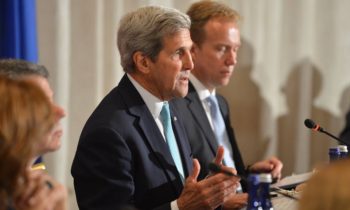 Last February, in Washington, President Obama joined President Santos in announcing Paz Colombia, which is a new strategic framework for our bilateral engagement. And I can say to all of you I was – I remember in 1998, ’9, we were working in the United States on what was then called Plan Colombia – a billion dollars at the time, a lot of people had doubts it would make a difference. It was a hard fight, but we got it, and with the spirit of the people of Colombia, frankly, it did make a difference. It could not have done so without the courage of the leadership of Colombia that stood up and literally reclaimed their country from narco-terrorists and from terrorists.
Last February, in Washington, President Obama joined President Santos in announcing Paz Colombia, which is a new strategic framework for our bilateral engagement. And I can say to all of you I was – I remember in 1998, ’9, we were working in the United States on what was then called Plan Colombia – a billion dollars at the time, a lot of people had doubts it would make a difference. It was a hard fight, but we got it, and with the spirit of the people of Colombia, frankly, it did make a difference. It could not have done so without the courage of the leadership of Colombia that stood up and literally reclaimed their country from narco-terrorists and from terrorists.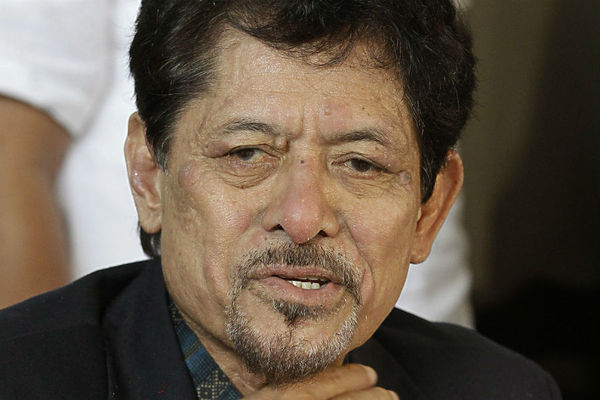
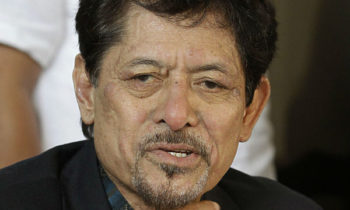 Abu Sayyaf extremists on Saturday freed a Norwegian man kidnapped a year ago in the southern Philippines along with two Canadians who were later beheaded and a Filipino woman who has been released by the ransom-seeking militants, officials said.
Abu Sayyaf extremists on Saturday freed a Norwegian man kidnapped a year ago in the southern Philippines along with two Canadians who were later beheaded and a Filipino woman who has been released by the ransom-seeking militants, officials said.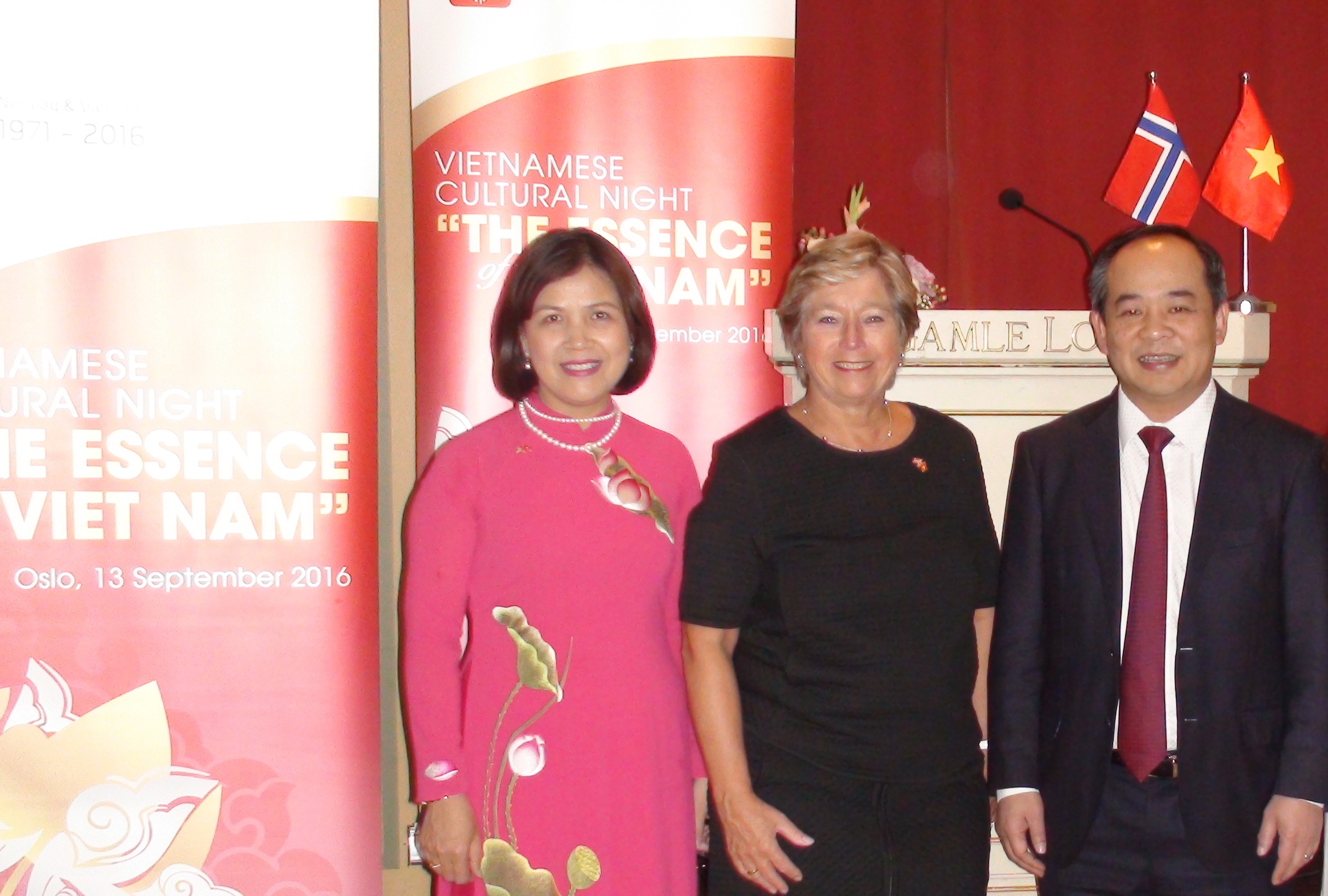


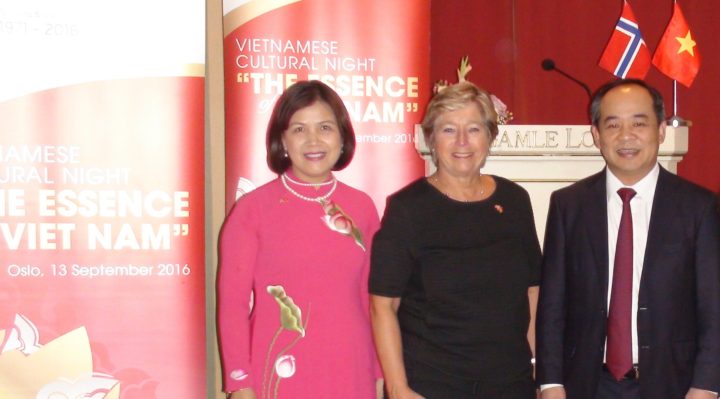
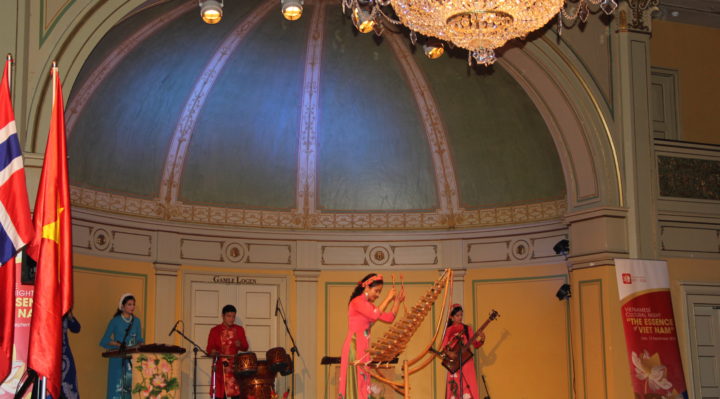



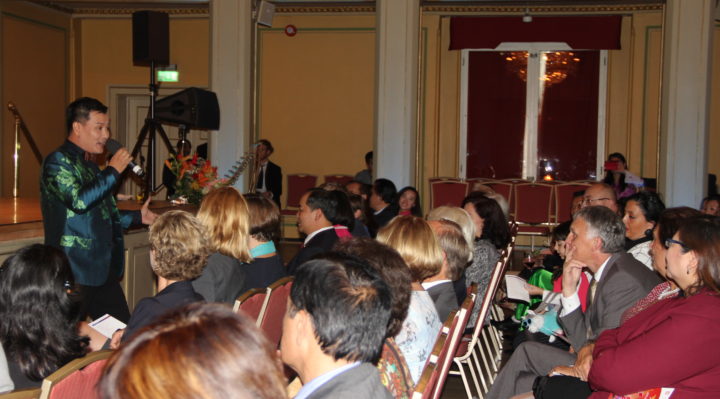


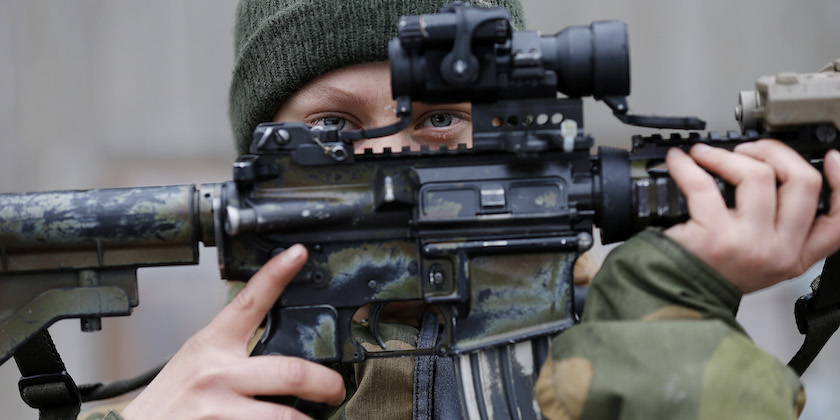
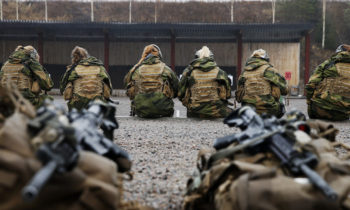 In 2014, Norway created the world’s first all-female special operations unit — out of necessity.
In 2014, Norway created the world’s first all-female special operations unit — out of necessity.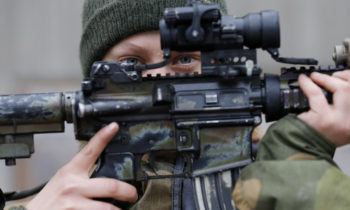 Since its establishment in 2014, Jegertroppen has earned a reputation for its rigorous instruction and low acceptance rates. Its yearlong training program includes a series of grueling challenges, and candidates must complete modules in Arctic survival, counterterrorism, urban warfare, long-range patrols, and airborne operations. According to the Norwegian Special Operations Forces Command, only 13 of the unit’s 317 candidates made it through the Jegertroppen course in 2014 — a 96% attrition rate that is similar to the Forsvarets Spesialkommando’s. 2015 posted similar numbers.
Since its establishment in 2014, Jegertroppen has earned a reputation for its rigorous instruction and low acceptance rates. Its yearlong training program includes a series of grueling challenges, and candidates must complete modules in Arctic survival, counterterrorism, urban warfare, long-range patrols, and airborne operations. According to the Norwegian Special Operations Forces Command, only 13 of the unit’s 317 candidates made it through the Jegertroppen course in 2014 — a 96% attrition rate that is similar to the Forsvarets Spesialkommando’s. 2015 posted similar numbers.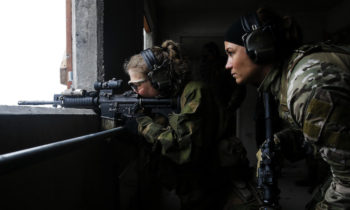 The creation of an elite all-female unit highlights a trend in Norway’s increasingly diverse armed forces. In 2002, women comprised only 0.7% of its military. That number is now at 10% and steadily growing, with most projections suggesting that the Norwegian military will be 20% women by 2020. In 2015, Norway became the first NATO country to introduce universal conscription. Norwegian officials maintain the changing military landscape does not affect the selection criteria. Physical standards for women are almost the same as they are for men, with only a few exceptions— for example, Jegertroppen soldiers carry 60-pound rucksacks instead of the heavier 88-pound packs their male counterparts carry.
The creation of an elite all-female unit highlights a trend in Norway’s increasingly diverse armed forces. In 2002, women comprised only 0.7% of its military. That number is now at 10% and steadily growing, with most projections suggesting that the Norwegian military will be 20% women by 2020. In 2015, Norway became the first NATO country to introduce universal conscription. Norwegian officials maintain the changing military landscape does not affect the selection criteria. Physical standards for women are almost the same as they are for men, with only a few exceptions— for example, Jegertroppen soldiers carry 60-pound rucksacks instead of the heavier 88-pound packs their male counterparts carry.
 Romania is among the first beneficiary states to sign memoranda of understanding for the implementation of the European Economic Area (EEA) Financial Mechanism and the Norwegian Financial Mechanism for 2014-2021.
Romania is among the first beneficiary states to sign memoranda of understanding for the implementation of the European Economic Area (EEA) Financial Mechanism and the Norwegian Financial Mechanism for 2014-2021.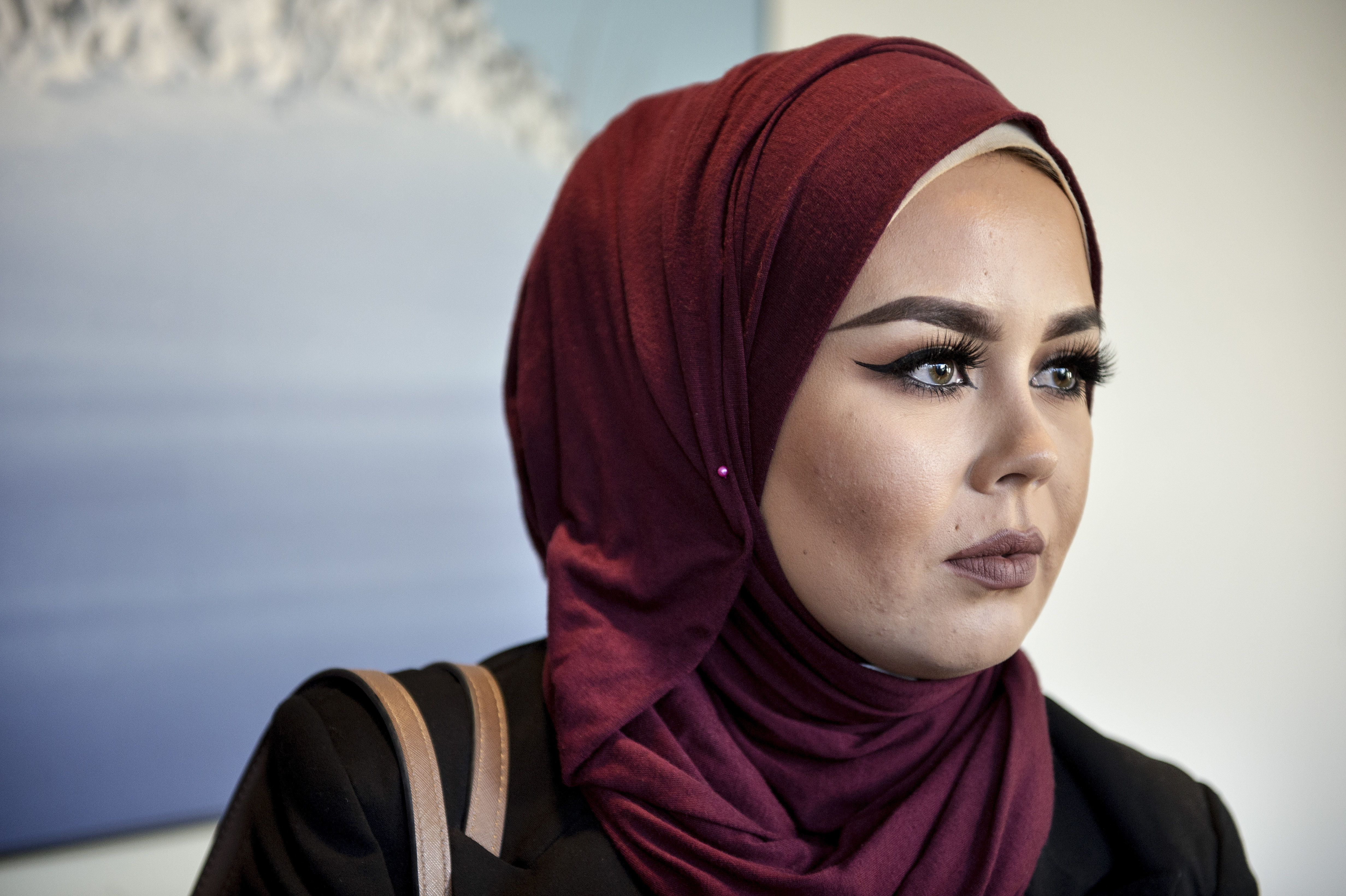
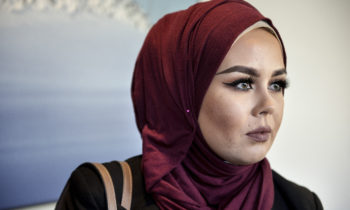
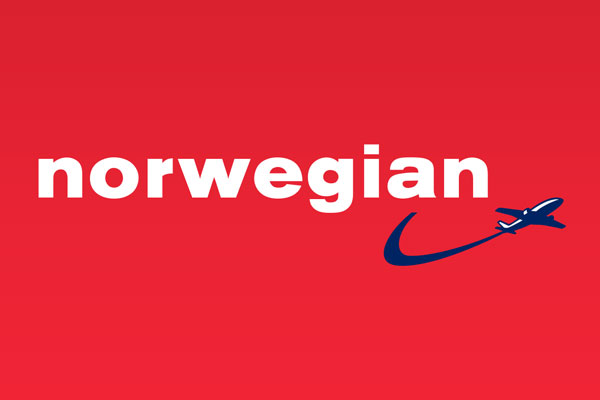
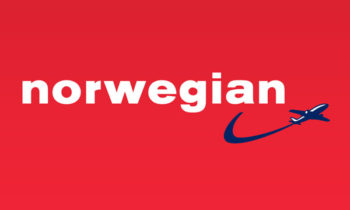 The boss of budget carrier Norwegian airline has accused US officials of being protectionist, claiming that a delay in clearing new services from Ireland is unlawful.
The boss of budget carrier Norwegian airline has accused US officials of being protectionist, claiming that a delay in clearing new services from Ireland is unlawful.
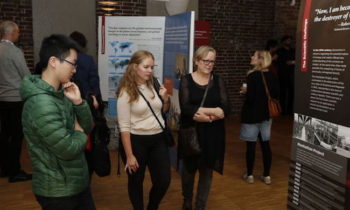 Norway is a founding member of the North Atlantic Treaty Organization (NATO), enjoying the Alliance’s protection as a nuclear umbrella state and yet widely known for its association with peace issues: not only for hosting the first international Conference on the Humanitarian Impact of Nuclear Weapons in Oslo in March 2013.
Norway is a founding member of the North Atlantic Treaty Organization (NATO), enjoying the Alliance’s protection as a nuclear umbrella state and yet widely known for its association with peace issues: not only for hosting the first international Conference on the Humanitarian Impact of Nuclear Weapons in Oslo in March 2013.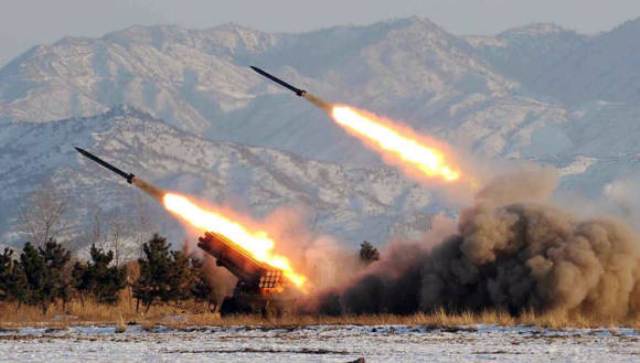
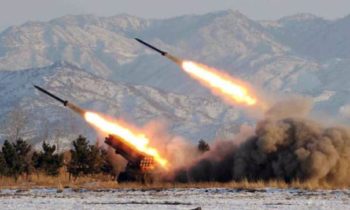 Norway condemns the nuclear test carried out by the Democratic People’s Republic of Korea (DPRK) today. ‘The DPRK has once again defied a united international community by carrying out a fifth nuclear test,’ said Minister of Foreign Affairs Børge Brende.
Norway condemns the nuclear test carried out by the Democratic People’s Republic of Korea (DPRK) today. ‘The DPRK has once again defied a united international community by carrying out a fifth nuclear test,’ said Minister of Foreign Affairs Børge Brende.
 A stellar line up of Croatian wines in Oslo, as Swedish importer Armano’s presents some of the best of Croatian wine at the Croatian Embassy in Norway on September 7, 2016.
A stellar line up of Croatian wines in Oslo, as Swedish importer Armano’s presents some of the best of Croatian wine at the Croatian Embassy in Norway on September 7, 2016.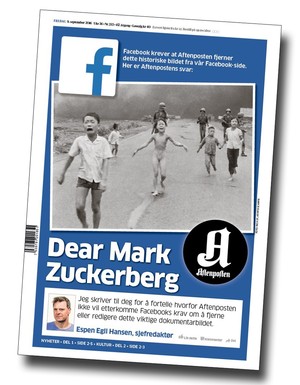
 Norway’s largest newspaper published today an open letter on its front page to Facebook CEO Mark Zuckerberg, attacking the company for having deleted a post containing the famous “napalm girl” photo.
Norway’s largest newspaper published today an open letter on its front page to Facebook CEO Mark Zuckerberg, attacking the company for having deleted a post containing the famous “napalm girl” photo.